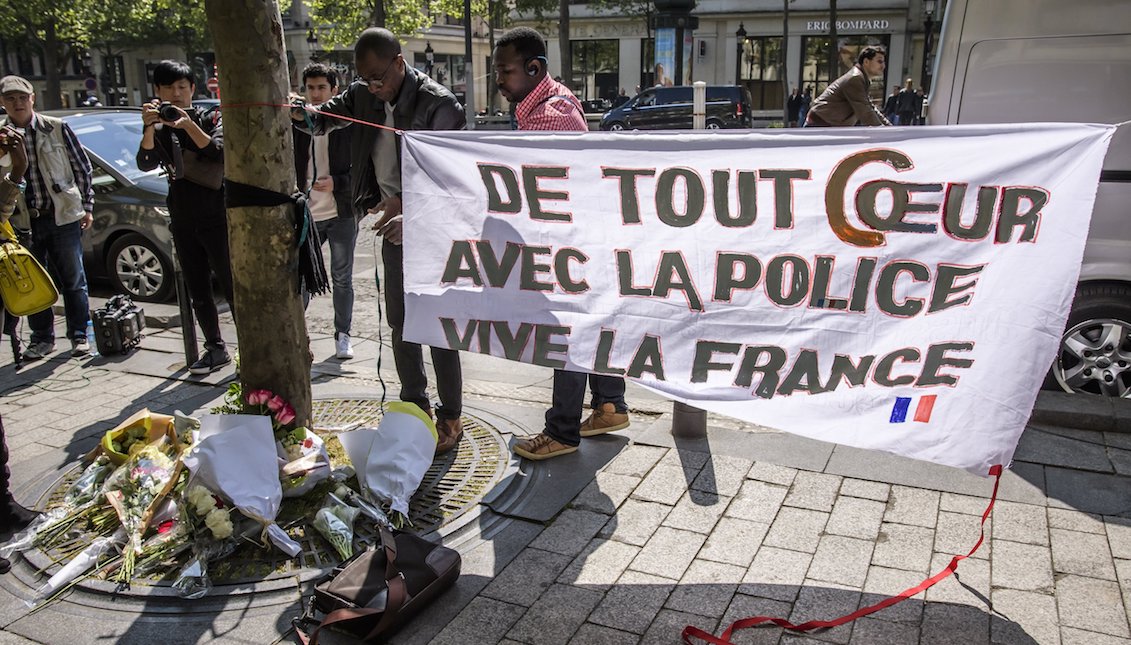
Attacks in Paris: when terrorism is the best political campaign
In the most critical moment of French democracy, terrorism is once again the driving force behind the electoral machinery.
On the eve of the French elections, a Frenchman opened fire yesterday at 9 pm against a police patrol on the Champs Elysees in Paris, killing one officer and wounding three others. The attacker was killed by another patrol when he tried to flee.
The agents immediately blocked access to the area and hours later the Islamic State claimed responsibility for the attack.
The Paris-based public prosecutor's office carried out the relevant investigations, registering the house of the assailant, holder of the registration document found in the vehicle used in the attack, according to the newspaper El Mundo.
A second suspect has been identified by the French Ministry of the Interior in collaboration with the Belgian authorities, who identified him with a search warrant on his behalf, but the individual has appeared at an Antwerp police station in Belgium.
French authorities indicated that the attacker used "an automatic war weapon, most likely a machine gun like the Kalashnikov," the report continues.
The agency of the Islamic terrorist group Amaq identified the aggressor as one of its fighters, under the name of Abu Yussef "the Belgian", and French agents have arrested three members of his family.
The French capital has blocked the area and remains heavily militarized. According to AFP, the attacker had been investigated by anti-terrorist forces and had been arrested in 2005 for attempting to assault police officers.
RELATED CONTENT
The attack comes at the height of French democracy, in the face of tightly divided elections, where the leading voice is the National Front, led by Marine Le Pen, who has used anti-Islamist and isolationist rhetoric to champion her candidacy. Her political party used the social networks in an aggressive way, spreading a supposed photograph of the aggressor, using the death of the police agent as a matter of electoral propaganda, assuring that "things like that would not happen with Le Pen in the presidency."
François Fillon, a conservative candidate said, "the fight against terrorism should become the top priority."
Faced with a very high-undecided population, yesterday's attack could tip the election towards a dangerous extremist right.
According to Melissa Bell, CNN correspondent (link is external) in Paris, "this changes the last hours of the campaign, puts the fight against terrorism, immigration and national identity in the center. It makes it so much more than a battle between Marine Le Pen and his opponents. "
The three main candidates for the election, Le Pen, Fillon and the center independent, Emmanuel Macron, announced the suspension of their rallies on the last day of the campaign, before the elections on Sunday.
This is not an isolated case in European political strategies. We must remember the Spanish national tragedy of March 11, 2004, when an Al Qaeda cell attacked the Atocha train station (Madrid), leaving 191 dead and more than 1,500 injured, and a manipulation of the event led by the then Spanish president Jose Maria Aznar, tried to capitalize on the elections of March 13 of the same year, in which his Popular Party was defeated.
The hope lies in the democratic tradition and in the political consciousness of the French people, who will decide on Sunday the future of the nation of human rights, facing an international political scenario that requires more conciliation and less viscerality.










LEAVE A COMMENT: